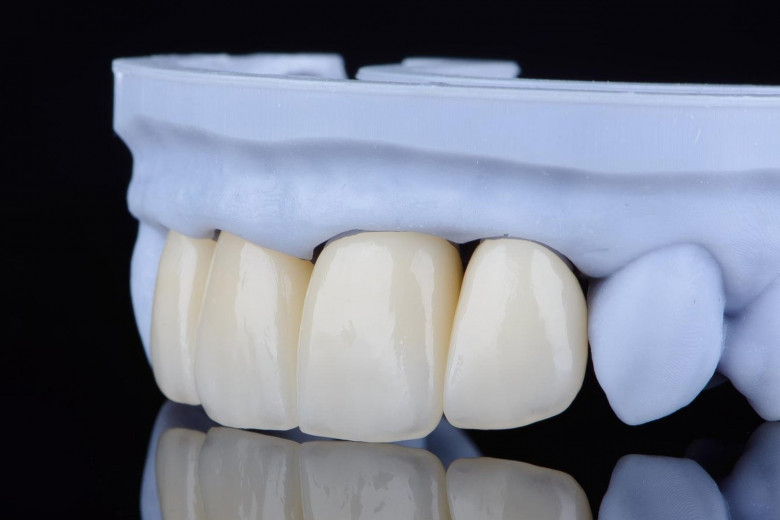views
When it comes to restoring your smile, few treatments are as widely recommended as crowns and bridges. Whether you're dealing with a broken tooth, a missing one, or simply want to regain full function and confidence, these dental prosthetics offer a reliable solution. But the question remains: are dental crowns and bridges permanent solutions?
The short answer is no—they're not technically permanent. However, they are long-lasting and, with proper care, can serve you for many years. For those seeking restorative dental work in the UAE, Dental Crowns and Bridges in Dubai are among the most popular choices due to their effectiveness and natural look. Let’s dive deeper into how they work, what affects their longevity, and what you can do to make the most of them.

Understanding Crowns and Bridges
Dental crowns are tooth-shaped caps placed over damaged or weakened teeth. They restore the tooth’s shape, strength, and appearance. Common reasons for getting a crown include severe decay, fractures, or after a root canal treatment.
Dental bridges, on the other hand, are used to replace one or more missing teeth. They consist of one or more artificial teeth (pontics) held in place by crowns attached to the adjacent natural teeth. Bridges literally “bridge” the gap left by missing teeth, helping to restore both function and aesthetics.
Both options are custom-made to match the color and contour of your natural teeth, making them almost indistinguishable from the real thing.
Are They Permanent?
While dental crowns and bridges are fixed prosthetics (unlike removable dentures), they are not considered permanent in the medical sense. Most crowns and bridges last between 10 to 15 years, though many can last longer with excellent care.
Several factors affect their lifespan:
-
Material Used: Porcelain-fused-to-metal, all-ceramic, and zirconia crowns each have different durability levels. Zirconia, for example, is known for its strength and longevity.
-
Oral Hygiene: Just like natural teeth, crowns and bridges require regular brushing, flossing, and dental check-ups to remain in good condition.
-
Bite and Usage: Grinding your teeth or chewing hard foods can reduce the lifespan of your crowns and bridges.
-
Gum and Bone Health: Even if the prosthetic is intact, gum disease or bone loss can compromise the structure supporting it.
Pros of Crowns and Bridges
Despite not being permanent, crowns and bridges offer numerous advantages that make them a valuable investment in your dental health:
-
Restored Functionality: Chewing, biting, and speaking become easier and more natural.
-
Improved Appearance: These restorations are designed to blend seamlessly with your smile.
-
Preventative Benefits: Bridges prevent adjacent teeth from shifting, which could lead to bite problems or jaw pain.
-
Confidence Boost: A complete and healthy smile often enhances self-esteem and social confidence.
Maintenance Tips to Prolong Their Lifespan
Want your dental crown or bridge to go the distance? Here are essential maintenance tips:
-
Brush Twice a Day: Use fluoride toothpaste and a soft-bristled brush to clean around the crown or bridge.
-
Floss Daily: Pay extra attention to the area around the gum line and under the bridge. Special floss threaders can help clean hard-to-reach spots.
-
Avoid Hard or Sticky Foods: Ice, hard candies, and sticky treats can crack or dislodge your crown or bridge.
-
Wear a Mouthguard: If you grind your teeth at night, a mouthguard can protect your restoration from premature wear.
-
See Your Dentist Regularly: Routine check-ups allow for early detection of any issues that may compromise your prosthetic.
When Should They Be Replaced?
Even the best-maintained dental work may eventually need to be replaced. Signs that your crown or bridge may need attention include:
-
Visible cracks or chips
-
Looseness or movement
-
Persistent bad breath or metallic taste
-
Pain or sensitivity when biting
Your dentist will assess the condition during routine exams and recommend replacement only when necessary.

Alternatives to Consider
While crowns and bridges are excellent solutions, they’re not the only ones. Dental implants, for example, are a more permanent (and often more costly) alternative for replacing missing teeth. However, not everyone is a candidate for implants due to bone health or medical history.
Removable dentures are another option, though they typically don’t offer the same comfort or stability as fixed prosthetics. The right choice depends on your individual dental needs, oral health, and lifestyle.
Final Thoughts
Dental crowns and bridges are not permanent in the absolute sense, but they are certainly among the most durable and effective solutions available today. With the right care and attention, they can last for a decade or more—restoring your smile, improving your bite, and boosting your confidence. Whether you’re dealing with tooth damage or loss, choosing Dental Crowns and Bridges Dubai gives you access to world-class dental craftsmanship and cutting-edge materials, ensuring results that are both beautiful and functional.
While maintenance is key, the rewards—both cosmetic and functional—are well worth the effort. Treat your crowns and bridges like natural teeth, and they’ll serve you well for years to come.






















Comments
0 comment